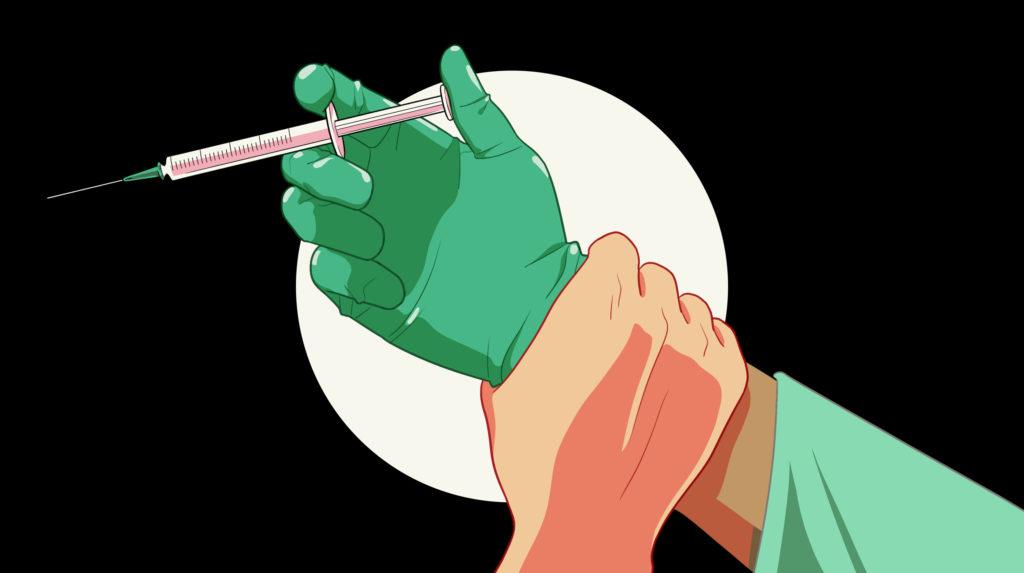Serbia is on top of the list of countries with most patients suffering from cervical cancer. This type of cancer can be treated very successfully if diagnosed on time. Unfortunately, women from Serbia do not visit gynaecologists regularly. Most of them avoid making an appointment because they fear there is something wrong with their health and do not want to know more about it. Some ladies do not want to be seen in a gynaecologist’s office since they are afraid people will make up stories and gossip about them.
There are various factors that impact Serbian women and make it hard for health professionals to prevent and treat some very dangerous disorders. Studies have shown that women who visit doctors regularly take great care of their health, are aware of how important it is to get checked once a year and do not see illness as bad luck or faith.
Vesna Kostic, who is a clinical psychology specialist, says that ladies who avoid doctors and various types of prevention programs suffer from high levels of anxiety, have a hard time facing reality and accepting their health problems and visit the doctor when their symptoms become quite serious.

They are lazy, irresponsible, and unaware of their health problems. Most of them want to avoid big crowds in the clinics, are too busy and uninformed, and have poor health education. Some recent studies have shown that married women go to gynaecologists more often than those who don’t have families, maybe because they feel more responsible. There is an interesting fact, which reveals that women in Serbia are sometimes ashamed to visit the gynaecologist, especially before marriage.
Prevention programs should be presented mainly to the less educated population and inform them about all the potential risks, but without scaring them. Our goal is to prevent disorders as much as possible. Some countries have special organized screening programs, and women who do not show up on their appointment must pay fines, which can cost quite a lot of money. This seems to be effective in many countries.
More than 1300 women in Serbia are diagnosed with cervical cancer each year, and about 500 of them die from this disorder. Some patients say they did not make any appointments because they thought it was not necessary. Doctors have a hard time explaining the importance of prevention measures, and that those are more important than hairdressers and cosmeticians. In Belgrade, only 30% of women visit the gynaecologist.

Usually, they visit the doctor when they are pregnant because that is the only time they think about their health. Reproductive health is very important, and cervical cancer can be treated only if patients visit the doctor on time. HPV is still a quite common cause of death in this area, although we know how to prevent and treat it. You can even get vaccinated.
What every woman should do at least once a year is the well-known Pap test. Pap tests (or some call them Pap smears) look for cancers and precancers located in the cervix. Those precancers are special cell changes that are often caused by the human papillomavirus (HPV). If not treated, they can become cervical cancer.
All women aged 21 to 65 years need to get tested each year. You can get infected with this virus and get away with no symptoms or signs of infection. In some cases, it will cause cervical cancer. In many countries, women are obligated to receive the anti-HPV vaccine. The small number of children in Serbia gets vaccinated because their parents do not want to pay for the vaccine.

Many ladies feel uncomfortable visiting the gynaecologist since they feel ashamed of their bodies and intimate body parts. They refuse to be exposed and risk having huge health problems. Your doctor does not care about how your body looks or how much you weigh, it is his/her job does check on your reproductive organs. Other doctors, such as adolescent medicine specialists, family doctors, or even paediatricians, can give you some useful information and examine you as well.
- Why you need to visit the gynaecologist:
- They will help you understand your body and ways to take care of it
- Inform you how to notice some changes
- Find problems and treat them on time
- Explain to you what normal discharge is
- Give you some tips on how to protect yourself
Dr. Maglic says that it is much easier to do yearly check-ups than not to do them at all since you will prevent serious treatments and fight for survival.

“Many people forget or are unaware that the OB/GYN is a primary care specialty,” said Dr. Alice Roberts, who works as OB/GYN at Abington Memorial Hospital. “At annual exams, we perform a great deal of preventive health screening that is specific to women.”
“There is also a great deal of teaching performed during routine annual exams, including timing and technique of self-breast exams, and safe s*x behaviour in teenagers or any woman not in a monogamous relationship,” she added.
What to expect during a visit to the gynaecologist?
The exam consists of a vital signs exam, and the doctors ask you about your background history. A gynaecologist should ask certain questions about your menstrual periods if you had any pelvic pain, fertility issues, history, bladder dysfunction, or infections.

Physical examination consists of a breast exam, abdominal exam, and of course, a pelvic exam. A pelvic exam is quite sensitive, so it is usually the last one. Your legs will be covered with sheets. The tools which are used are speculum and some others. You will perform a breast exam. It is very important because women have a high risk of breast cancer. Your doctor may show you how to examine your breasts and notice any changes.
A standard pelvic exam consists of three main parts. First, there is an external genital exam to check your vulva, then with using a speculum. The last is the exam of your internal organs when the doctors will insert their gloved, lubricated fingers to make sure that your organs, such as uterus and ovaries, are healthy. That is known as a bimanual exam.
If you choose to do any tests, your doctor may call you to inform you about the results. Pap test results usually come in one or two weeks.
For more info about this topic, you should check this website Yourdoctor.online.

